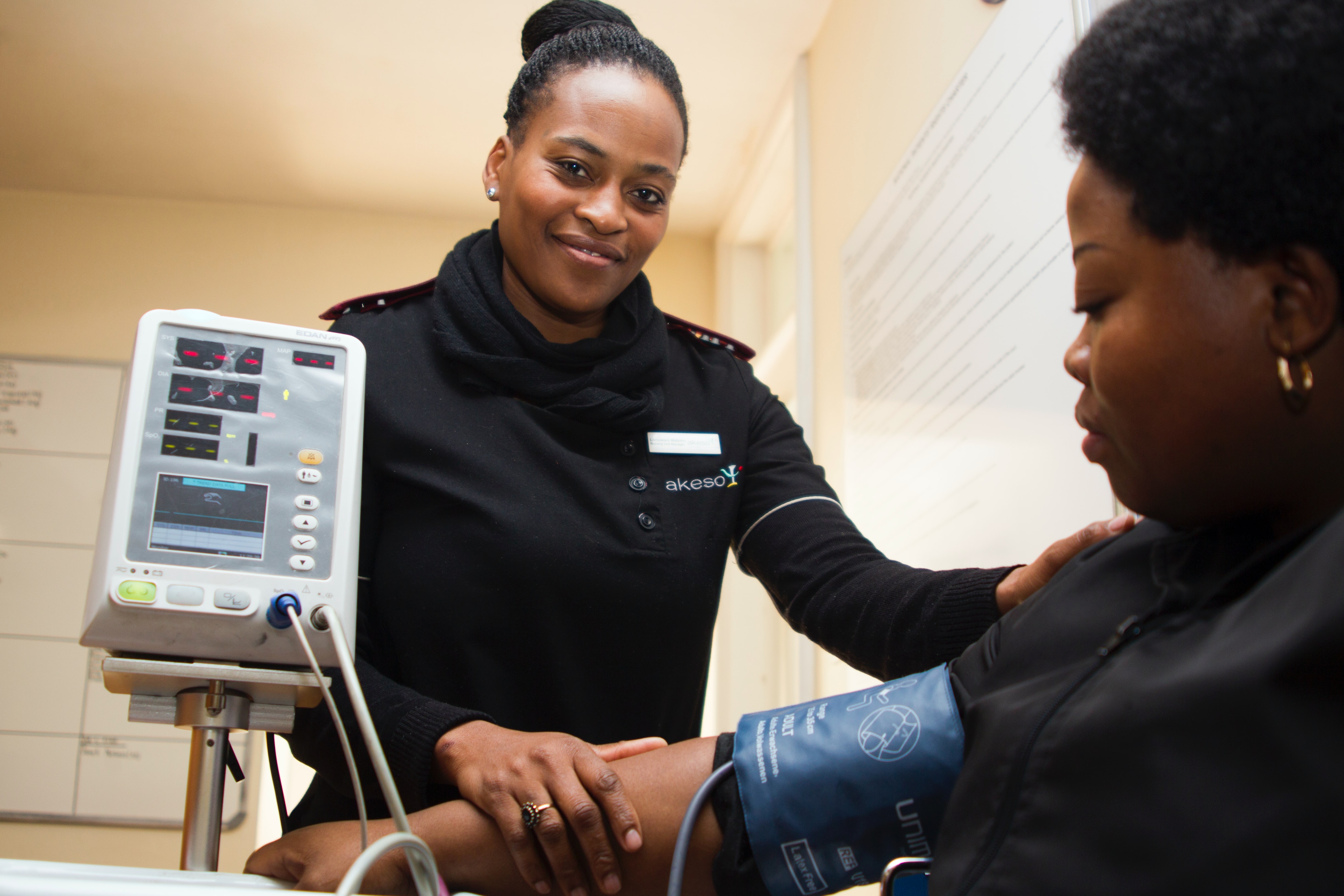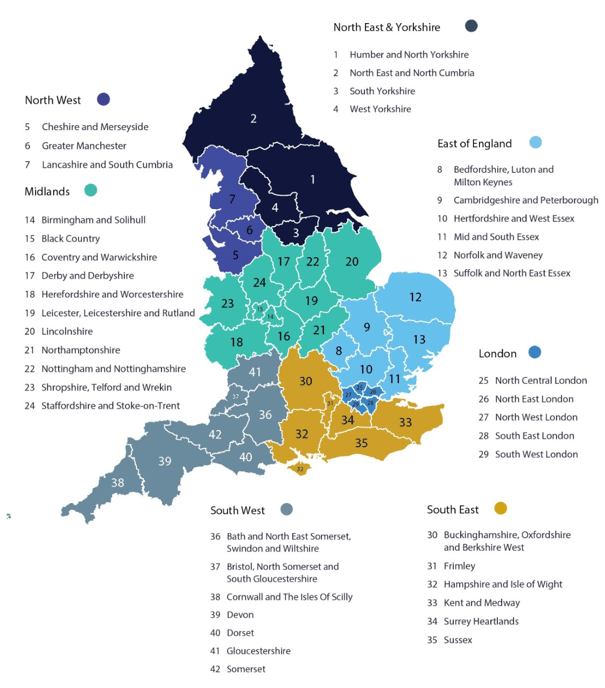
The Health and Care Act sees the dawn of Integrated Care Systems (ICS)
An ICS (integrated care system) is a new partnership of organisations, made up of an integrated care board (ICB) and an integrated care partnership (ICP), that provide healthcare to a larger area and population (than CCGs). Their aim is to coordinate services and to plan in a way that improves population health and reduces inequalities between different groups.
Each ICB is responsible for planning NHS services, including ambulances, primary care, mental healthcare, hospital (acute), community and specialist care.
ICPs have a broader focus, covering ICS-wide strategy, public health, social care, and wider issues impacting the health and wellbeing of the local population.
.png?width=627&name=download%20(1).png)
Image from @integratedNHS
There are 42 integrated care systems that replace the now dissolved 106 NHS clinical commissioning groups (CCGs) and lead on funding and planning healthcare services in their local areas. A CCG was a ‘commissioner’ (or ‘purchaser’) of healthcare at a local level, e.g. it paid for your care in a hospital (called a ‘provider’). They were not part of hospitals. In an ICS, the purchaser and provider will be the same thing.
This may have advantages as it will lessen competition between hospitals, encourage co-operation, and reduce the tension between groups within the NHS.
A core part of the NHS Long Term Plan from 2019, integrated care systems (ICS) are intended to build on how health and care services have been working together, at local levels, to focus much more around the people they serve rather than their organisational boundaries.
We, as patients, are becoming more and more at the centre of the health and care system and we shall see how patient services and outcomes are improved, by Integrated Care Systems (ICS), in the coming months and through the winter pressures.

Image from: https://www.nhsconfed.org/
Read more about the ICS in your area here:
https://www.nationalcareforum.org.uk/integrated-care-systems/find-your-ics-and-partners/
